All videos (English)
The Risk of Caring - Interview with Paul Golden
02.05.2025
Subtitle "Afrikaans" was produced by machine.Subtitle "አማርኛ" was produced by machine.Subtitle "العربية " was produced by machine.Subtitle "Ārāmāyâ" was produced by machine.Subtitle "azərbaycan dili " was produced by machine.Subtitle "беларуская мова " was produced by machine.Подзаглавието "България" е създадено от машина.সাবটাইটেল "বাংলা " মেশিন দ্বারা তৈরি করা হয়েছিল।Subtitle "བོད་ཡིག" was produced by machine.Subtitle "босански" was produced by machine.Subtitle "català" was produced by machine.Subtitle "Cebuano" was produced by machine.Subtitle "ગુજરાતી" was produced by machine.Subtitle "corsu" was produced by machine.Podtitul "Čeština" byl vytvořen automaticky.Subtitle "Cymraeg" was produced by machine.Subtitle "Dansk" was produced by machine.Untertitel "Deutsch" wurde maschinell erzeugt.Subtitle "Untertitel" was produced by machine.Ο υπότιτλος "Ελληνικά" δημιουργήθηκε αυτόματα.Subtitle "English" was produced by machine.Subtitle "Esperanto" was produced by machine.El subtítulo "Español" se generó automáticamente.Subtitle "Eesti" was produced by machine.Subtitle "euskara" was produced by machine.Subtitle "فارسی" was produced by machine.Subtitle "Suomi" was produced by machine.Le sous-titrage "Français" a été généré automatiquement.Subtitle "Frysk" was produced by machine.Subtitle "Gaeilge" was produced by machine.Subtitle "Gàidhlig" was produced by machine.Subtitle "Galego" was produced by machine.Subtitle "Schwizerdütsch" was produced by machine.Subtitle "هَوُسَ" was produced by machine.Subtitle "Ōlelo Hawaiʻi" was produced by machine.Subtitle "עברית" was produced by machine.Subtitle "हिन्दी" was produced by machine.Subtitle "Mẹo" was produced by machine.Subtitle "Hrvatski" was produced by machine.Subtitle "Kreyòl ayisyen " was produced by machine.Subtitle "Magyar" was produced by machine.Subtitle "Հայերեն" was produced by machine.Subtitle "Bahasa Indonesia " was produced by machine.Subtitle "Asụsụ Igbo " was produced by machine.Textun"Íslenska" var framkvæmt vélrænt.Sottotitoli "Italiano" sono stati generati automaticamente.字幕は"日本語" 自動的に生成されました。Subtitle "Basa Jawa" was produced by machine.Subtitle "ქართული" was produced by machine.Subtitle "қазақ тілі " was produced by machine.Subtitle "ភាសាខ្មែរ" was produced by machine.Subtitle "ಕನ್ನಡ" was produced by machine.Subtitle "한국어" was produced by machine.Subtitle "कोंकणी語" was produced by machine.Subtitle "کوردی" was produced by machine.Subtitle "Кыргызча" was produced by machine.Subtitle " lingua latina" was produced by machine.Subtitle "Lëtzebuergesch" was produced by machine.Subtitle "Lingala" was produced by machine.Subtitle "ພາສາ" was produced by machine.Subtitle "Lietuvių" was produced by machine.Subtitle "Latviešu" was produced by machine.Subtitle "fiteny malagasy" was produced by machine.Subtitle "te reo Māori" was produced by machine.Subtitle "македонски јазик" was produced by machine.Subtitle "malayāḷaṁ" was produced by machine.Subtitle "Монгол хэл" was produced by machine.Subtitle "मराठी" was produced by machine.Subtitle "Bahasa Malaysia" was produced by machine.Subtitle "Malti" was produced by machine.Subtitle "မြန်မာစာ " was produced by machine.Subtitle "नेपाली" was produced by machine.Ondertitels "Nederlands" machinaal geproduceerd.Subtitle "Norsk" was produced by machine.Subtitle "chiCheŵa" was produced by machine.Subtitle "ਪੰਜਾਬੀ" was produced by machine.Podtytuł "Polska" został utworzony przez maszynę.Subtitle "پښتو" was produced by machine.Legenda "Português" foi gerada automaticamente.Subtitle "Română" was produced by machine.Subtitle "Язык жестов (Русский)" was produced by machine.Субтитры "Pусский" были созданы машиной.Subtitle "Kinyarwanda" was produced by machine.Subtitle "सिन्धी" was produced by machine.Subtitle "Deutschschweizer Gebärdensprache" was produced by machine.Subtitle "සිංහල" was produced by machine.Subtitle "Slovensky" was produced by machine.Subtitle "Slovenski" was produced by machine.Subtitle "gagana fa'a Samoa" was produced by machine.Subtitle "chiShona" was produced by machine.Subtitle "Soomaaliga" was produced by machine.Subtitle "Shqip" was produced by machine.Subtitle "србски" was produced by machine.Subtitle "Sesotho" was produced by machine.Subtitle "Basa Sunda" was produced by machine.Undertext "Svenska" är maskinell skapad.Subtitle "Kiswahili" was produced by machine.Subtitle "தமிழ்" was produced by machine.Subtitle "తెలుగు" was produced by machine.Subtitle "Тоҷикй" was produced by machine.Subtitle "ภาษาไทย" was produced by machine.ንኡስ ኣርእስቲ "ትግርኛ" ብማሽን እዩ ተፈሪዩ።Subtitle "Türkmençe" was produced by machine.Subtitle "Tagalog" ay nabuo sa pamamagitan ng makina.Subtitle "Türkçe" was produced by machine.Subtitle "татар теле" was produced by machine.Subtitle "Українська " was produced by machine.ذیلی عنوان "اردو" مشین کے ذریعہ تیار کیا گیا تھا۔Subtitle "Oʻzbek" was produced by machine.Phụ đề được tạo bởi máy.Subtitle "Serbšćina" was produced by machine.Subtitle "isiXhosa" was produced by machine.Subtitle "ייִדיש" was produced by machine.Subtitle "Yorùbá" was produced by machine.Subtitle "中文" was produced by machine.Subtitle "isiZulu" was produced by machine.
kla.TV accepts no liability for defective translation.kla.TV accepts no liability for defective translation.kla.TV accepts no liability for defective translation.kla.TV accepts no liability for defective translation.kla.TV accepts no liability for defective translation.kla.TV accepts no liability for defective translation.kla.TV не носи отговорност за некачествен превод.অপর্যাপ্ত অনুবাদের জন্য kla.TV কোন দায় বহন করে না।kla.TV accepts no liability for defective translation.kla.TV accepts no liability for defective translation.kla.TV accepts no liability for defective translation.kla.TV accepts no liability for defective translation.kla.TV accepts no liability for defective translation.kla.TV accepts no liability for defective translation.kla.TV nenese žádnou odpovědnost za chybné překlady.kla.TV accepts no liability for defective translation.kla.TV accepts no liability for defective translation.kla.TV übernimmt keine Haftung für mangelhafte Übersetzung.kla.TV accepts no liability for inadequate translationΗ kla.TV δεν φέρει καμία ευθύνη για ανεπαρκή μετάφραση.kla.TV accepts no liability for defective translation.kla.TV accepts no liability for defective translation.kla.TV no se hace responsable de traducciones incorrectas.kla.TV accepts no liability for defective translation.kla.TV accepts no liability for defective translation.kla.TV accepts no liability for defective translation.kla.TV accepts no liability for defective translation.kla.TV n'assume aucune responsabilité en cas de mauvaise traduction.kla.TV accepts no liability for defective translation.kla.TV accepts no liability for defective translation.kla.TV accepts no liability for defective translation.kla.TV accepts no liability for defective translation.kla.TV accepts no liability for defective translation.kla.TV accepts no liability for defective translation.kla.TV accepts no liability for defective translation.kla.TV accepts no liability for defective translation.kla.TV accepts no liability for defective translation.kla.TV accepts no liability for defective translation.kla.TV accepts no liability for defective translation.kla.TV accepts no liability for defective translation.kla.TV nem vállal felelősséget a hibás fordításértkla.TV accepts no liability for defective translation.kla.TV accepts no liability for defective translation.kla.TV accepts no liability for defective translation.kla.TV tekur enga ábyrgð á áræðanleika þýðingarinnarKla.TV non si assume alcuna responsabilità per traduzioni lacunose e/o errate.Kla.TV は、不適切な翻訳に対して一切の責任を負いません。kla.TV accepts no liability for defective translation.kla.TV accepts no liability for defective translation.kla.TV accepts no liability for defective translation.kla.TV accepts no liability for defective translation.kla.TV accepts no liability for defective translation.kla.TV accepts no liability for defective translation.kla.TV accepts no liability for defective translation.kla.TV accepts no liability for defective translation.kla.TV accepts no liability for defective translation.kla.TV accepts no liability for defective translation.kla.TV accepts no liability for defective translation.kla.TV accepts no liability for defective translation.kla.TV accepts no liability for defective translation.kla.TV accepts no liability for defective translation.kla.TV accepts no liability for defective translation.kla.TV accepts no liability for defective translation.kla.TV accepts no liability for defective translation.kla.TV accepts no liability for defective translation.kla.TV accepts no liability for defective translation.kla.TV accepts no liability for defective translation.kla.TV accepts no liability for defective translation.kla.TV accepts no liability for defective translation.kla.TV accepts no liability for defective translation.kla.TV accepts no liability for defective translation.kla.TV accepts no liability for defective translation.kla.TV aanvaardt geen aansprakelijkheid voor foutieve vertalingen.kla.TV accepts no liability for defective translation.kla.TV accepts no liability for defective translation.kla.TV accepts no liability for defective translation.kla.TV nie ponosi odpowiedzialności za wadliwe tłumaczenie.kla.TV accepts no liability for defective translation.kla.TV não se responsabiliza por traduções defeituosas.kla.TV accepts no liability for defective translation.kla.TV accepts no liability for defective translation.kla.TV не несет ответственности за некачественный перевод.kla.TV accepts no liability for defective translation.kla.TV accepts no liability for defective translation.kla.TV accepts no liability for defective translation.kla.TV accepts no liability for defective translation.kla.TV accepts no liability for defective translation.kla.TV accepts no liability for defective translation.kla.TV accepts no liability for defective translation.kla.TV accepts no liability for defective translation.kla.TV accepts no liability for defective translation.kla.TV nuk mban asnjë përgjegjësi për përkthime joadekuate.kla.TV accepts no liability for defective translation.kla.TV accepts no liability for defective translation.kla.TV accepts no liability for defective translation.Kla.TV tar inget ansvar för felaktiga översättningar.kla.TV accepts no liability for defective translation.kla.TV accepts no liability for defective translation.kla.TV accepts no liability for defective translation.kla.TV accepts no liability for defective translation.kla.TV accepts no liability for defective translation.kla.TV ንዝኾነ ጉድለት ትርጉም ዝኾነ ይኹን ሓላፍነት ኣይቅበልን እዩ።kla.TV accepts no liability for defective translation.kla. Walang pananagutan ang TV sa mga depektibong pagsasalin.kla.TV accepts no liability for defective translation.kla.TV accepts no liability for defective translation.kla.TV accepts no liability for defective translation.kla.TV عیب دار ترجمہ کے لیے کوئی ذمہ داری قبول نہیں کرتا ہے۔kla.TV accepts no liability for defective translation.Kla. TV không chịu trách nhiệm về bản dịch không đầy đủ.kla.TV accepts no liability for defective translation.kla.TV accepts no liability for defective translation.kla.TV accepts no liability for defective translation.kla.TV accepts no liability for defective translation.kla.TV accepts no liability for defective translation.kla.TV accepts no liability for defective translation.
This is a modal window.
The media could not be loaded, either because the server or network failed or because the format is not supported.
The Risk of Caring - Interview with Paul Golden
02.05.2025
www.kla.tv/37526
Internationally healthcare is under restrictions through fearbased management - depriving individuals of their human right to free choice concerning medical interventions.
Healthcare providers might find themselves under attack - even up to being sentenced to prison - if they support their patients' choices against the reglements of their healthcare system.
Paul Golden, a medical expert, legal advisor and author gives us insight into this imbalance and shows ways out of this systemic injustice.
[continue reading]
The Risk of Caring - Interview with Paul Golden
Download broadcast and attachments in the wanted quality:
Useage rights:
Standard-Kla.TV-Licence
Trending on Kla.TV











1
www.kla.tv/37362 34:08 Have the existence of viruses and contagion not been proven? Interview with Marvin Haberland from Next Level

2
www.kla.tv/31816 1:29:49 RESONANCE Beings of Frequency Documentary film by James Russell on the Dangers of Wireless Technology

3
www.kla.tv/37476 47:38 Why haven't we been back to the moon? - Interview with Bart Sibrel

4
www.kla.tv/30242 47:42 20. AZK - James Corbett Interview: Conflict in the Middle-East and Central Bank Digital Currencies: An absolute Horror Scenario

5
www.kla.tv/37367 1:06 INVITATION – International Friends Meeting on Saturday the 3rd of May, 2025 - with Kla.TV founder Ivo Sasek.

6
www.kla.tv/37542 1:40:01 Ritual Cults - Disclosed Actions Coming to Light (Walpurgis Night)

7
www.kla.tv/37533 28:20 Interview with Dr. Calin Georgescu The BIG „Change“ comes through the people

8
www.kla.tv/37526 11:36 The Risk of Caring - Interview with Paul Golden

9
www.kla.tv/37305 29:52 Heiko Schöning: Corruption Money for War and Pandemics

10
www.kla.tv/27300 1:40:01 The Blood Cult II – 111 Victims, 50 Witnesses, 50 Perpetrators (by Lois Sasek)



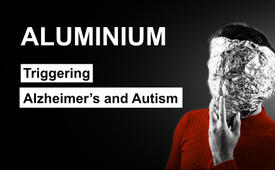







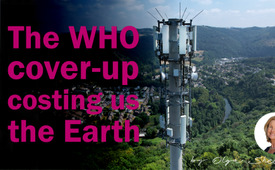
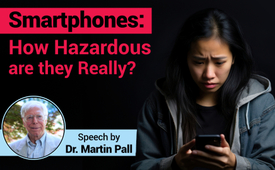

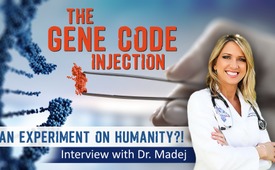
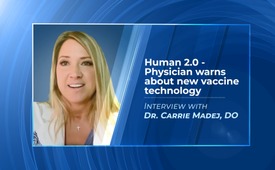




Sendungstext
herunterladen
28.04.2025 | www.kla.tv/37526
[Interviewer:] I have the privilege of interviewing Paul Golden today. Paul is a birth worker, an intensive care specialist for newborns, babies, and adults. He has over 35 years of experience accompanying thousands of births. He's also an author, he's a legal advisor, he's a mediator, and a human rights advocate for childbirth. He has been supporting and advising families, health care workers, and birth workers in legal cases against them. I want to dive in right away with the first question, Paul. Thank you for being here. Can you briefly give us an overview over the cases you're looking at at the moment, internationally? [Paul Golden:] Some of the cases go back thirty years, but if we start with the current cases, there was a case a few days ago I heard about in Brazil, where a doctor, who's an obstetrician - gynecologist, and his wife is a midwife, and they were sentenced to 14 and 11 years in jail in Brazil, where they were actually taken to jail, it's not just a sentence, for the death of a baby, where they transferred from home to hospital, did the best they could, they're respecting the woman's choices to birth how and where she would like, that's protected by the right to private and family life, Article 8 of the United Nations Convention. So they have been respecting all this. They're working outside the system, but then sometimes they have to kind of work almost underground. So this is a punishment sentence by the judge, who said very clearly he's sending a message to women not to birth at home. Now, really, it's women's choice, it's bodily autonomy, it's choice. And that's a severe case that had a jury, but a jury can be misdirected by a judge, by not allowing the defense, not giving information. There's another doctor who I know, Dr. Edson, who gave defense information, or tried to, to the court and was not allowed to give it. So it's a bit of a sham, bit of a kangaroo court, and it will, I'm sure, be overturned. But the damage is very much done, because fear is happening with these cases. Similar case in Vienna recently, a conviction of manslaughter against a midwife, who also transferred in with a baby from a home birth, absolutely the woman's choice and right to be at home, but they were worried about the baby. All the scans said everything was okay, and it was not okay. There was congenital abnormality for the baby, placenta was not working properly, nobody's fault. And tragically, in both cases, the babies have died. Doesn't mean to blame somebody because they're working outside the system. What happens is a knee-jerk reaction, after the words of one of the Brazilian doctors is it's a chilling thing. They're all terrified now. Even the ones in the hospital are terrified if they did something that could be criticized. So they don't do what's best. For the mother and baby. They do what's best for their jobs and their own protection. [Interviewer:] How are these cases linked to the quality of care we are going to receive, or the quality of care health workers and birth workers are being able to give us? Keyword fearbased care versus best care. [Paul Golden:] And quality is important. We often focus on quantity and both are important, but probably in my view quality is much more important both in clinical things, but also in legal things. So for example in legal things, that's the quality of our expert witness evidence needs to be high quality with people, very strong arguments and strong research and strong publications to negate the prosecution's expert witnesses, which are often emotional saying you shouldn't have a home birth, but they don't say why and they don't prove their points. So looking at the quality is down to this fear-based practice in hospitals, whether it's nurses, doctors, midwives, and even the management. You have to have very courageous management. There's love -based to have the confidence to say, let's listen to the consumer to the family. Give them what they want as far as we can. Now one consumer wants something quite different. Somebody's happy to birth in water on the bed off the bed in a birth center. It should be choice. Yeah, but if we go back even over 30 plus years, some people were sanctioned not always with a criminal conviction, but they would have their license taken away, which has a similar impact. They cannot get work without their license and not just in their profession. They cannot work in the society and community without their registration often. And that could be for giving blood or taking somebody to a hospital in their own car without insurance. Technically breaking a rule to save a life is sanctioned very heavily and it's absolutely mad: Isn't it more important to save somebody's life and respect their choices? And it's not always safer to be in hospital than at a home birth because we have lots of evidence of harm from hospital and the Oxford Study, the birthplace study, very clearly shows that hospital is not the safest place to be. [Interviewer:] Yeah, I like the love based care you mentioned. Do you see a trend in direction of getting rid of home births, in direction of pushing women into the system of the hospital the medical system based care? [Paul Golden:] If I put it simply: We only have the rights we stand up for. So I see more state intervention in all areas of our life, in health and education, many other areas. Like vaccinations is partly the whole thing and telling us what to do and how to do it and why we should do it and the state knows better... and that will only happen if we allow it! So if we stand up for our rights and say: "Actually I would like to opt out of this" or: "I'm not opting into something and you have to demonstrate why the intervention is safe not I have to demonstrate why not having it is safe". The onus is on the prosecution and the onus is on the intervention, whether it be a medical intervention, e.g. induction of labor. Why is somebody saying it's safe? How can you be sure it won't upset the baby? So do I see a trend against home birth? It is declining. It's getting less. Netherlands had 30% and down to 20% - that's partly consumer driven so they don't always want the home births. Some countries have gone from 5% up to 50%, certain areas of countries. I've known in New Zealand in the north of New Zealand and in general we're talking about sometimes less than 1% in many countries like the Balkans Baltic countries, but then Germany and other countries 4% the UK around about three, four percent. You know, we look at America for spending the most money on birth care and having the worst outcomes. It's almost as bad as Afghanistan. I am exaggerating a little bit but we have a league: Some people are not in the league, they don't present their data. They hide it, so they can't really be evaluated. But America is very low down in that league and Scandinavian countries are higher up. So why is America performing so bad when it spends the most? Because they do more interventions than any other country. And they're not safe: You always have a negative, or a potential for an unintended consequence, a negative consequence from medicine or surgery that's unnecessary. [Interviewer:] Concerning these legal cases we were looking on to the at the beginning: What would you tell the 20 year old who is starting off in his career, or the 73 year old grandmother? Why should they care? I mean, why should they care about these legal cases? Why should they care about where people give birth? People can just go to hospital to give birth. [Paul Golden:] It's not a hobby a subject of mine. Birth affects everyone. We all were born. Yeah, the 70 year old was born and people in their older years can still remember giving birth themselves. So it's very relevant to all of us, but the fundamental thing is if we don't stand up for each other, who will stand up for us? So whether the universities are having some struggle with the government, if hospital staff are having struggles, we should all be in it together and help each other, listen to each other. If we don't agree with each other, we can disagree nicely and have a different understanding. Doesn't mean we have to fight each other. So basically if I represent others, hopefully if I need somebody to represent me, they will. I've had so many people give me great opportunities in life. I've lived and worked in Oriental Asian countries, Central and South States of America like California, Mexico and people really work well together, just from free will. But if we lose that, we lose our humanity. [Interviewer:] What would you say about these legal cases: We are seeing lots of these legal cases also in the covert time. We saw the cases in Germany like where doctors were convicted for freeing children from wearing masks and they got convicted, sentenced to jail or taken away their license or they had to pay high sums or high fines. There are lots of similar cases like these birth care workers who are doing home births, who are being convicted. What would you say, what can we do about these cases practically, very practically? [Paul Golden:] I'm glad you asked me that because I have a creative answer. Now the straightforward answer is: Appeal. And in many situations appeals are relatively successful. It's worth doing. Now you could fail. We have to not be attached to outcome, just be in the process. The same with birth, the same with legal things. So we can appeal but we can also go around it: Is the prosecutor in the case performing correctly? If they're doing it incorrectly, we can challenge their registration. Is their regulatory body for the prosecutor performing properly? If they're not, we can challenge them. When the police bring a criminal prosecution. Did they do it correctly? Or did they just take one side? So if they failed in the process, we need to challenge them. And we don't ask them: Please look at your process, was it wrong? We go to bodies outside the police. What I really like is the power of the courts. So we take the challenger, the prosecutor, anybody, even the judge to some extent - now, they're all protected to some extent - but we can take some individuals and organizations to court. So when wrongful convictions happen, it's because there's a wrongdoing by a person. We need to identify that, engage with them, mediate with them, invite them to talk. If they don't, we take them to court or we challenge their regulatory body. We need to be creative with the law! And quite often we just say, oh, we appealed and didn't get it... that's the end of it. No, we can be creative with our lives and with the law! [Interviewer:] Challenge the Challenger. Turn around the Spears. [Paul Golden:] I mean, I say challenge the Challenger with kindness and education. We don't have to be in a fight and resistance. But like no, I think that's wrong. I want to do this and keep doing it and find other countries that have done it. Why is Brazil being one of the worst countries in the world now with autocratic state -sponsored kind of terrorism? On its own citizen, you know, depriving children of the right not to wear masks, for example, you mentioned. [Interviewer:] Or not beeing vaccinated. [Paul Golden:] Yeah. So why are some countries in Europe allowing you can step over the border, one country allows something that another one doesn't. So Germany's relatively liberal in some areas. But in Berlin they put a midwife in jail who also wasn't really guilty, but she did almost seven years in jail. And she was really taking care of a family and their choices. But there is a risk to the clinicians. We shouldn't have to pay that price of going to jail for being a good caring person working from a love base. Not just flimsy love, but based on clinical rationale evidence-based research. [Interviewer:] Thank you. Thank you for your work. And thank you for this interview. [Paul Golden:] Thank you.
from sg